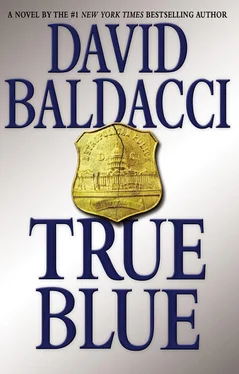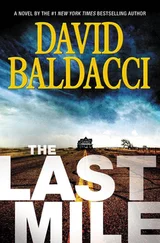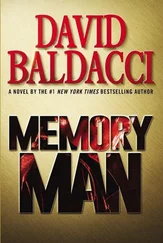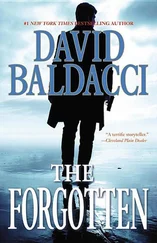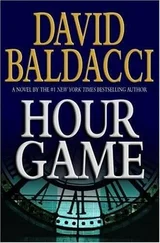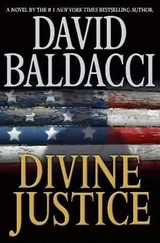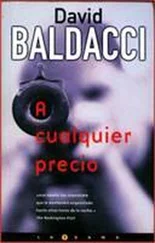“That and things going missing.”
“Missing? Like what?”
“Tools. Food. I thought this building was supposed to be secure.”
“Well, the uniform at the front desk is basically useless.”
“Heard about some lady lawyer getting killed here. Is it true?”
“Afraid so.”
ROY HEADED ALONG the riverfront, stopping near one of the piers where a forty-foot cabin cruiser was docked. What would it be like, he wondered, to live on a boat and just keep going? Watch the sunset and grab a swim when he wanted? See the world? He’d seen his hometown, lived in D.C., Charlottesville. He’d visited lots of cities, but only to bounce basketballs on hardwood before heading on. He’d viewed the Atlantic and Pacific oceans at forty thousand feet. He’d seen Big Ben, and sand in the Middle East. That was about it.
He smelled him before he saw him.
He turned, his hand already reaching into his pocket.
“Hey, Captain.”
“Roy.” The man gave him a quick salute.
The Captain was in his late fifties and the same height as Roy. However, whereas Roy was lean, the Captain was built like a football lineman. He must’ve outweighed Roy by eighty pounds. It had once all been muscle, Roy was sure, but the streets had made a fatty transformation of the man’s once impressive physique. His belly was so swollen now that the bottom three buttons on the jacket could no longer be used. And his body listed heavily to the left, probably as did his spine. Eating crap out of Dumpsters and sleeping on cement did that to you.
Roy called him the Captain because of the marks on his jacket. From what he’d learned of the man’s history, the Captain had once been an Army Ranger and had distinguished himself in Vietnam. But after returning home things had not gone well. Alcohol and then drugs had ruined what should have been an honorable military career. Apparently the VA had tried to help him, but the Captain had eventually fallen through the cracks and into a life on the streets of the capital of the country he had once defended with his blood.
He’d been homeless for over a decade now. And each year his uniform grew more tattered and his skin more permanently stained by the elements, much in the same way that buildings became filthy. However, there was no one to come and give him a good power wash. Roy had first met him when he’d worked as a CJA. Before he’d settled on G-town, the Captain’s foraging range was wider and his manner more aggressive. He’d had a couple of assault charges, mostly for harassing tourists or office dwellers for money or food. Roy had defended him once, gotten him probation, and then tried to get him help, but the VA was swamped with needy soldiers from current wars, and the Captain had never been good about follow-up.
It was sad, and yet all Roy could do was open his wallet, look into the darkened, grizzled face that housed a pair of dimming, vacuous eyes that indicated the owner was not all there, and say, “How about I get you some food?”
The Captain nodded, pushing a huge hand through his tangle of filthy gray and white hair. He wore tattered gloves that had once been white but were now even blacker than his face. As they trudged along together Roy looked down and noted that the Captain’s shoes were really pieces of cardboard held together with twine. He had survived the previous winter and the heavy spring rains, and the night chills were gone now. Yet Roy wondered, as the Captain coughed up some phlegm and spit it out into the Potomac, if the older man could survive another year out here. As he gazed at the Captain’s jacket and saw the Combat Bronze and other medals on his chest, including the designation for two Purple Hearts, he thought that a country’s warriors deserved better than this.
The Captain dutifully waited outside the café, like an obedient dog, as Roy bought the food. He came back out, handed the bag over, and watched as the Captain settled down on the curb and ate it all right there, drinking down the coffee last. He wiped his mouth with the paper bag and rose.
“What size shoe do you take?” Roy asked.
The Captain looked down at his feet. “Big. I think.”
“Me too. Come on.”
They walked back to the office building and into the underground garage. From the backseat of his Audi, Roy pulled out a pair of nearly new basketball shoes. “Try these on.” He tossed them to the Captain, who was quick-handed enough to snare them both.
He sat down on the cold floor of the garage and stripped off his cardboard and twine. When Roy saw the blackened, raw skin festered with lumps and green-colored cuts, he looked away.
“Good to go,” the Captain said a minute later. Roy was sure they would have fit if the man had had to cut off his toes. “You sure, Roy? Bet these cost probably a million dollars, right?”
“Not quite and I’ve got plenty.” He studied the Captain. If he gave him cash it would go for booze or some street drugs that the Captain didn’t need in his system. He had driven him to shelters on three occasions, but the man had walked out of each one within a day or so. Roy was not going to take him to live at his condo. His neighbors would probably not approve, and there was no guarantee that the former military man would not suddenly go nuts and use Roy for a cutting board.
“Come around in a couple days and I’ll have some more stuff for you, okay?”
“Yes, sir,” the Captain said amiably, giving him another snappy salute.
Roy suddenly noticed something missing and wondered why he hadn’t before. “Where’s your cart?” Like some homeless people, the Captain kept everything he had in an old rusted shopping cart with two busted front wheels. You could hear him coming a mile away just from the screech of metal.
“Some pricks stole it!”
“Do you know who?”
“Damn Vietcong. I’ll catch ’em. And then. Look.” The Captain reached in his pocket and pulled out a large clasp knife. It looked military-issued.
“Don’t do that, Captain. Let the police handle it.”
The Captain just stared at him. Finally he waved a big hand at Roy. “Thanks for the shoes.”
UNFORTUNATELY, her mother’s husband, Timothy, was there. Fortunately, he wasn’t wearing a kilt. To Mace, he looked like a person of leisure who desperately wanted to be perceived as a man of the land with a British twist. This translated into an outfit consisting of tweeds, an old-fashioned shotgun vest with holders for the shells, a cute pocket kerchief that exactly matched his checked shirt, and nearly knee-high brown leather riding boots, though there wasn’t an equine in sight. When Mace saw him she felt her cheeks begin to quiver and had to look away quickly before the next sound that was heard from her was a snort.
An older woman in a maid’s uniform brought coffee and little sandwiches out to the faux English conservatory they were sitting in. She looked as though she would rather be driving tenpenny nails through her skull with a hammer than playing maid for Timothy and Dana. The sandwiches weren’t nearly as wonderful as the spread Abe Altman had offered. Still, Mace filled her belly and had her caffeine fix.
The little Yorkie, whose name Mace had been told was Angelina Fernandina, sat on a plump pillow in front of her own little gold tray of high-end vittles, happily nipping away with teeth the size and shape of splinters. Mace inclined her head at precious Angelina. “Do you dress her in clothes too?”
Dana answered, “Only when we travel. Our jet makes her cold.”
“Poor thing,” said Mace.
“So does Beth still have a menagerie of misfits?”
“Just me and Blind Man, but he’s going strong. Probably be alive and well when you’re planting old Angie there in the dirt.”
Читать дальше
